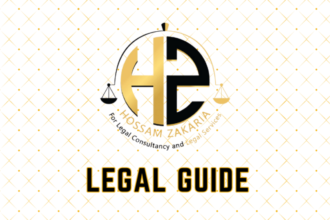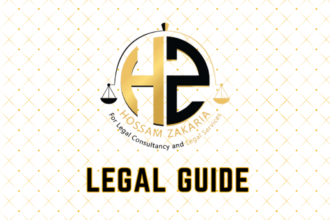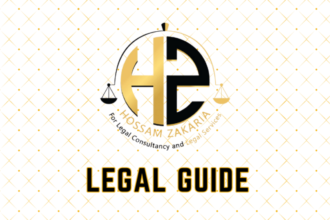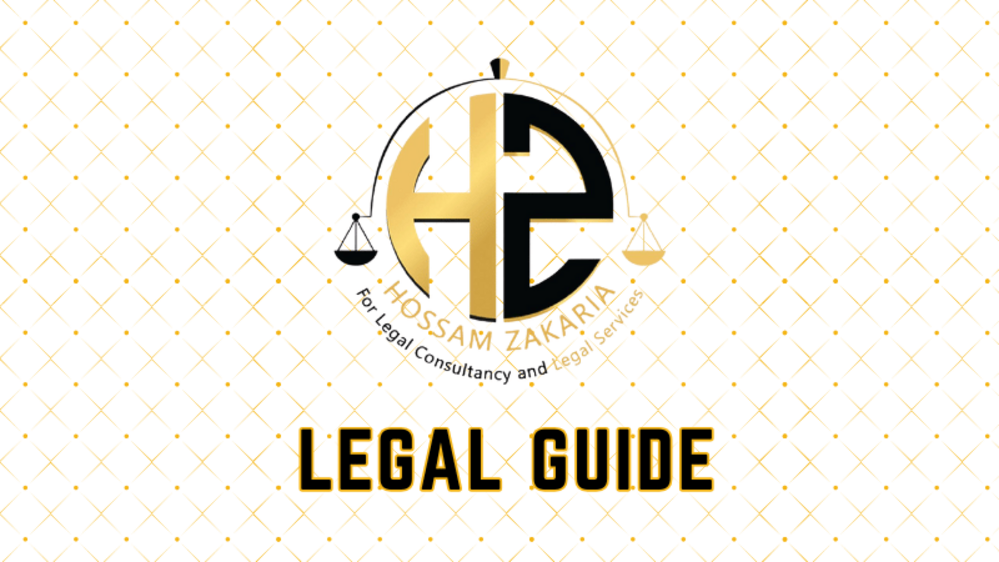Introduction
For UAE businesses aiming to expand operations or resolve cross-border disputes in Qatar, understanding the arbitration framework in Qatar has never been more critical. With the Gulf region’s business landscape increasingly interconnected, the strategic use of arbitration institutions presents unique opportunities—as well as legal considerations—for UAE-based companies. Recent legislative updates in both Qatar and the UAE, notably the alignment of arbitration laws with international best practices, have made it imperative for corporations, legal departments, and executives to reassess their dispute resolution strategies. In this advisory, we provide a consultancy-grade guide to navigating arbitration institutions in Qatar, tailored for UAE businesses seeking compliance, efficiency, and risk mitigation.
Our analysis draws upon official legal sources, such as the UAE Ministry of Justice and Federal Legal Gazette, and includes detailed comparisons, risk assessments, and actionable recommendations. Whether you are a general counsel, business executive, or in-house legal advisor, this article serves as a practical resource to interpret laws, identify regulatory shifts, and harness the power of international arbitration with minimal exposure to legal pitfalls.
Table of Contents
- Overview of the Arbitration Landscape in Qatar
- Legal Framework: Arbitration Laws in Qatar and the UAE
- Key Arbitration Institutions in Qatar: Features and Processes
- Navigating Institutional Arbitration: Strategic Insights for UAE Businesses
- Case Studies and Hypothetical Scenarios
- Risks of Non-Compliance and Best Practices for Compliance
- Conclusion and Future Trends
Overview of the Arbitration Landscape in Qatar
Qatar’s arbitration environment has evolved rapidly over the past decade, particularly following the adoption of Law No. (2) of 2017 issuing the Civil and Commercial Arbitration Law, modeled after the UNCITRAL Model Law. This move has fostered an arbitration-friendly climate and enhanced Qatar’s appeal as a regional and global arbitration hub. Qatar has also solidified its reputation through robust institutions like the Qatar International Court and Dispute Resolution Centre (QICDRC) and the Qatar International Center for Conciliation and Arbitration (QICCA). These bodies offer well-defined procedures for commercial dispute resolution that meet the demands of international investors, including UAE counterparts strongly engaged in cross-border transactions.
For UAE businesses, choosing the right Qatari arbitration forum is a critical step. The right institution can provide neutrality, procedural predictability, and enforceability—qualities often desired in high-value contracts. Understanding the institutional distinctions, legal underpinnings, and best-fit scenarios for each arbitral organization is vital for informed risk management and strategic decision-making.
Legal Framework: Arbitration Laws in Qatar and the UAE
Qatar’s Arbitration Law: Law No. (2) of 2017
Law No. (2) of 2017 marked a significant transformation in Qatar’s dispute resolution landscape. Adopting principles from the UNCITRAL Model Law, it introduced modernized standards for the recognition and enforcement of domestic and foreign arbitral awards, party autonomy, and streamlined institutional rules.
| Feature | Qatar: Law No. (2) of 2017 | UAE: Federal Law No. 6 of 2018 |
|---|---|---|
| Model Law Basis | Adopts UNCITRAL Model Law, with modifications for local context | Adopts UNCITRAL Model Law, tailored to UAE legal system |
| Enforcement of Foreign Awards | New York Convention 1958 (ratified) | New York Convention 1958 (ratified) |
| Arbitral Tribunal Powers | Flexible procedures, party autonomy | Emphasizes arbitrator independence, limited appeal |
| Interim Measures | Allowed, subject to judicial support | Allowed, includes emergency arbitrator provisions |
| Confidentiality | Implied; may be specified by parties | Explicitly addressed in legislation |
| Timeframe for Enforcement | Shortened judicial review process | Recognizes swift enforcement, court’s supporting role |
Recent Updates and Their Impact
While no major amendments have been introduced in 2024 or 2025 as of the latest updates from official sources, Qatar’s regulatory bodies and the UAE Federal Arbitration Law have released several circulars and judicial guidelines aimed at further harmonizing arbitration practice with international trends. These initiatives address digital hearings, enforceability of electronic awards, and facilitate cross-border cooperation, which are increasingly relevant for UAE businesses managing remote or hybrid dispute resolution.
Practical Compliance Considerations
From a legal consultancy perspective, UAE businesses must ensure that their contracts with Qatari counterparts contain clear and enforceable arbitration clauses that:
- Designate the chosen arbitral institution (e.g., QICCA, QICDRC, ICC Qatar)
- Specify the seat and language of arbitration
- Align with both parties’ commercial objectives and legal frameworks
- Reflect the latest procedural rules and digital communication tools permitted by recent circulars
Failure to comply with these best practices can result in protracted disputes, unenforceable awards, or increased exposure to parallel litigation in Qatari or UAE courts.
Key Arbitration Institutions in Qatar: Features and Processes
1. Qatar International Center for Conciliation and Arbitration (QICCA)
Operating under the Qatar Chamber of Commerce and Industry, QICCA is a leading institution for commercial dispute resolution in Qatar. QICCA’s arbitration rules align closely with the UNCITRAL Model Law, offering:
- Flexible procedures and transparent timelines
- An updated panel of local and international arbitrators
- Digital filing and hearings (post-pandemic update)
- Recognition and enforcement of both domestic and foreign awards consistent with the New York Convention
QICCA’s established fee schedule and streamlined appointment processes allow for cost-efficient and effective resolution of contractual disputes, a notable advantage for UAE companies used to regional arbitration standards.
2. Qatar International Court and Dispute Resolution Centre (QICDRC)
Situated in the Qatar Financial Centre (QFC), the QICDRC specializes in resolving civil and commercial matters, blending common law and international arbitration practices. Key features include:
- Specialist civil and commercial litigation and arbitration services
- Multilingual proceedings and international bench
- Jurisdiction over disputes arising within the QFC as well as willing external parties
- Integrated e-court and case management systems
QICDRC’s model has been tailored to accommodate international parties, offering a stable alternative for UAE businesses wary of unfamiliar local practices.
3. ICC Arbitration (Qatar National Committee)
The International Chamber of Commerce (ICC) maintains a National Committee in Qatar, providing businesses the option to arbitrate under ICC Rules. Salient points for UAE businesses include:
- Familiarity with ICC procedures
- Global enforceability and recognition
- Highly qualified arbitrators with cross-border commercial experience
- Sophisticated rules for expedited, emergency, or digital proceedings
While the ICC entails higher costs, its predictability and robust enforcement record attract parties involved in large or complex projects, especially in construction, energy, or joint ventures between the UAE and Qatar.
Comparison Table: Key Qatar Arbitration Institutions
| Institution | Main Jurisdiction | Language Options | Digital Facilities | Recommended For |
|---|---|---|---|---|
| QICCA | General commercial disputes | Arabic, English | Yes, online filing/hearings | SMEs, regional trade |
| QICDRC | QFC & willing external parties | English (primary), Arabic | Advanced e-court system | International investors, complex cases |
| ICC Qatar | International and local contracts | English, French, Arabic | Digital submissions | Large-scale, cross-border projects |
Navigating Institutional Arbitration: Strategic Insights for UAE Businesses
Critical Steps for Selecting the Right Institution
The choice of arbitration institution can impact not only expediency and cost, but also enforceability and reputation management. Here are the consultancy-recommended steps for UAE clients:
- Assess Jurisdictional Exposure: Review the location of assets, contracting parties, and potential enforcement venues.
- Evaluate Sensitivities: Consider sector-specific factors (construction, energy, finance), cultural dynamics, and language preferences.
- Review Institutional Rules: Analyse the applicable rules, schedule of fees, appointment mechanisms, and provisions on confidentiality and interim relief.
- Draft Custom Arbitration Clauses: Avoid generic or template clauses. Work with legal counsel to draft bespoke clauses specifying seat, language, governing law, and institutional rules, ensuring these are compatible with both Qatari and UAE legal standards.
Best-Fit Scenarios for Each Institution
| Dispute Type | Recommended Institution | Reason |
|---|---|---|
| Export/import, distribution | QICCA | Quick procedures, cost-effective, strong regional panel |
| Major construction/energy | ICC Qatar | International best practice, enforceability, experienced arbitrators |
| Financial, banking, or QFC-related | QICDRC | Common law option, international standards, e-court support |
Consultancy Insight: Drafting Robust Arbitration Clauses
An effective clause can eliminate disputes over jurisdiction or procedure. Example language:
“Any dispute, controversy, or claim arising out of or in relation to this contract shall be resolved by arbitration in [QICCA / QICDRC / ICC Qatar]. The seat of arbitration shall be [Doha, Qatar], and the language of arbitration shall be [English/Arabic]. The arbitration shall be conducted in accordance with the chosen institution’s rules.”
Legal advisors are encouraged to update boilerplate contracts to incorporate any new rules or technology-related provisions issued by institutional guidelines in 2024–2025.
Case Studies and Hypothetical Scenarios
Case Study 1: Enforceability of Awards Across Jurisdictions
A UAE-based logistics company sues its Qatari partner for breach of distribution terms, referring the dispute to QICCA arbitration. The QICCA tribunal, applying the latest (2023) institutional rules, issues a final award in favor of the UAE claimant. The Qatari court, under Law No. (2) of 2017 and the New York Convention, enforces the award with minimal judicial intervention. The claimant is advised to ensure the original arbitration agreement is unambiguous and executed in both English and Arabic for optimal enforceability.
Case Study 2: Risks of Ambiguous Clauses
A UAE construction company enters a consortium with a Qatari firm, with an arbitration clause simply stating “arbitration in Doha under applicable law.” Upon dispute, the parties disagree on the forum and procedure, resulting in dual court and arbitral proceedings. Outcome: Delays, additional costs, and risk of unenforceability—a scenario that could have been avoided with well-defined clauses referencing an institution and rules.
Hypothetical: COVID-Era Digital Arbitration
Post-pandemic, a UAE-Qatar energy joint venture faces a payment dispute. The parties agree to a fully remote hearing via the QICDRC e-court system, applying 2023 circulars on digital evidence and video witness testimony. The digital-first process expedites resolution and reduces in-person risk, demonstrating the importance of adapting contracts and expectations in line with evolving institutional and regulatory guidance.
Risks of Non-Compliance and Best Practices for Compliance
Legal and Commercial Risks
- Unenforceable Awards: Poorly drafted clauses, failure to specify institution, seat, or language can leave awards vulnerable to non-recognition in Qatari or UAE courts.
- Jurisdictional Disputes: Ambiguity over forum leads to multiple proceedings, escalating costs and legal uncertainty.
- Breach of Local Regulations: Non-compliance with Qatari Law No. (2) of 2017 or the UAE Arbitration Law exposes parties to court intervention, delays, or annulment of proceedings.
- Reputational Harm: Publicized disputes or protracted enforcement issues can damage market reputation, especially in close-knit Gulf markets.
Compliance Checklist for UAE Businesses Engaging in Qatar
| Step | Action | Source/Reference |
|---|---|---|
| 1 | Draft clear, institution-referenced arbitration clauses | QICCA/ICC Rules, Law No. (2) of 2017 |
| 2 | Specify seat, language, and governing law | Both parties’ national laws |
| 3 | Ensure capacity and authority of signatories | Company by-laws, UAE Commercial Transactions Law |
| 4 | Include provisions for digital filings/hearings | 2023-24 Institutional Circulars |
| 5 | Consult legal counsel for annual contract review | UAE Ministry of Justice/Accredited Law Firms |
Visual Suggestion: Insert a process flow diagram illustrating steps from contract negotiation to enforceable final award, highlighting institutional choice and compliance checks.
Professional Consultancy Recommendations
- Engage legal counsel familiar with both UAE and Qatari arbitration frameworks to draft and review contracts
- Include up-to-date digital arbitration options and adhere to Data Protection Guidelines where cross-border e-evidence is involved
- Monitor institutional rule updates and regulatory circulars impacting arbitral proceedings and enforcement
Conclusion and Future Trends
For UAE businesses engaging in Qatar, mastering the intricacies of Qatar’s arbitration institutions is essential for safeguarding commercial interests and minimizing legal risk. The last several years have witnessed significant progress in the harmonization of arbitration laws, digital transformation of proceedings, and cooperation between Gulf regulatory bodies—all designed to promote confidence in international dispute resolution.
Looking ahead, further digitalization, enhanced transparency, and increasing cooperation between the UAE and Qatari courts are anticipated, especially with growing pressure to attract global investment and ensure swift dispute resolution. UAE businesses are advised to remain proactive: regularly review their dispute resolution clauses, seek cross-jurisdictional legal counsel, and embrace institutional best practices detailed in official legislative and regulatory updates. Staying ahead of regulatory change is the most effective compliance and risk management strategy in this evolving legal landscape.
For personalized guidance, regular updates, or in-depth contract vetting, UAE companies are encouraged to consult with legal experts specializing in cross-border Gulf arbitration and compliance.



